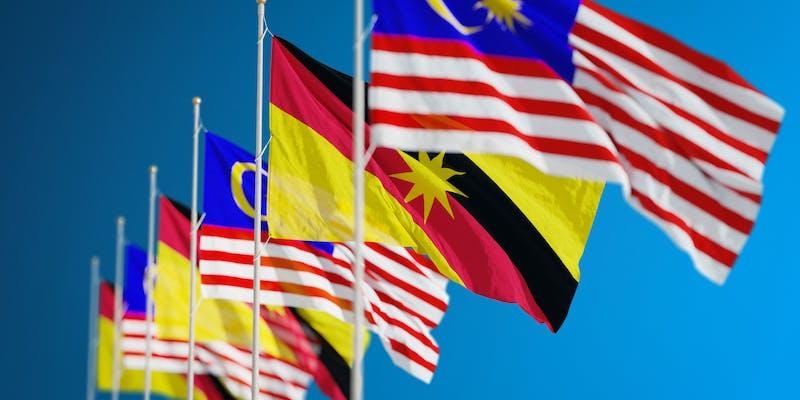What Does The Organization of Petroleum Exporting Countries (OPEC) Do?
Dec 15, 2023 By Susan Kelly
OPEC, the Organization of the Petroleum Exporting Countries, is vital worldwide. Its main goal is to coordinate and optimize member countries' oil policies. It does this to stabilize oil markets. The oil market's stability ensures a steady supply for buyers and a predictable income for exporters.
The OPEC headquarters are in Vienna, Austria. The OPEC Secretariat manages daily operations. Iran, Iraq, Kuwait, Saudi Arabia, and Venezuela founded OPEC in 1960 in Baghdad. Thirteen countries make up OPEC. Every oil market participant is important and influential.
The Secretary-General of OPEC is its CEO. Nigerian Mohammad Sanusi Barkindo served two three-year terms from 2016 to 2022. Interestingly, some of the biggest oil producers, like Russia, China, and the United States, are not part of OPEC. This allows them to follow their independent oil strategies.
Historical Overview of OPEC's Evolution
The birth of OPEC took place in Baghdad in 1960, marked by a foundational meeting between Iran, Iraq, Kuwait, Saudi Arabia, and Venezuela. Initially setting up its Secretariat in Geneva, the organization moved to Vienna in 1965. OPEC announced its Declaration of Petroleum Policy three years later, signaling a more pronounced role in global oil affairs.
Until 1973, OPEC's influence was overlooked. Arab countries cut oil production and stopped exporting to the US and Netherlands. This was done because these countries supported Israel during Yom Kippur. Until 1974, this trade restriction raised oil prices and caused a shortage in the US. Thirteen countries joined OPEC by 1975.
In 1976 the organization took a significant step by establishing the OPEC Fund for International Development. This initiative underlined OPEC's commitment to aiding developing nations. OPEC countries collaborate with the international community through this fund, offering financial assistance and grants to countries outside the organization.
OPEC Member Nations

The Organization of Petroleum Exporting Countries (OPEC) extends its membership to nations significantly involved in oil exportation and who align with the organization's goals. Initially formed by five nations, OPEC expanded to include 11 more countries by 2019, making it a key petroleum organization in global energy markets.
Countries joined OPEC in various orders. Qatar joined the group in 1961, followed by Indonesia and Libya in 1962. UAE and Algeria joined in 1967 and 1969, respectively. In 1971 and 1973, Nigeria and Ecuador joined the organization. Gabon made its mid-1970s debut in 1975. Angola joined in 2007, Equatorial Guinea in 2017, and Congo in 2018 after a long time.
As of 2020, OPEC's composition has seen significant changes. Ecuador exited the organization on January 1, 2020. Similarly, Qatar chose to end its membership at the beginning of 2019. Indonesia has had a fluctuating relationship with OPEC, suspending its membership as recently as November 30, 2016. These departures and suspensions have adjusted the count of OPEC countries, bringing the total to 13 states as of 2020.
OPEC's Core Mission
OPEC's primary goal is to promote collaboration among its members to create a cohesive petroleum policy. This goal must be met to maintain oil market stability.
OPEC aims to provide consumers with a reliable oil supply, producers with a dedicated revenue stream, and oil industry investors with an equitable return on investment. OPEC's strategy of oil price stability benefits its members and the global economy.
Global significance cannot be overstated for OPEC. The organization is vital to oil price stability. OPEC protects its members' interests and ensures a steady revenue stream from crude oil exports. This aspect of OPEC's mission is crucial for oil-dependent nations.
OPEC's Membership and Influence
OPEC, a major petroleum organization, accepts new members who are major crude oil exporters. A collective decision by three-fourths of current members grants full membership. In rare cases, OPEC grants associate memberships, showing its inclusiveness. OPEC held 80.4% of global crude oil reserves in 2021. OPEC members dominate the global oil market, as demonstrated by this statistic.
OPEC heavily influences global oil prices. The company dominates the market as the largest producer and exporter of crude oil and petroleum products. OPEC nations produced 40% of worldwide oil and held 60% of the petroleum market in 2021. OPEC's dominance allows it to influence oil prices through decision-making. If OPEC increases oil supply, prices could drop significantly. However, decreasing production and supply can raise prices significantly.
Benefits of OPEC Membership
- OPEC members benefit from improved cooperation. This collaboration leads to a more harmonious relationship among the central oil-producing nations.
- By working together, OPEC countries lower the chances of disputes among themselves, promoting a more peaceful oil sector.
- OPEC's ability to regulate oil output helps stabilize the market. This control ensures that oil prices do not fluctuate wildly, benefiting the global economy.
- Countries that import oil can rely on a consistent supply thanks to OPEC's management. This reliability is crucial for their energy security.
- OPEC provides essential information about the oil market. These insights are helpful for both producers and consumers in understanding market trends.
Challenges Faced by OPEC
- Not all OPEC members sometimes adhere to agreed-upon policies. This non-compliance can undermine the organization's effectiveness.
- The biggest oil producers within OPEC often have significant influence. This dominance can lead to decisions that favor them over smaller nations.
- Smaller OPEC countries sometimes have to sacrifice a degree of their independence in the market. This loss of autonomy can be challenging as they navigate the global oil industry.
OPEC's Market and Strategic Responses

The oil market, heavily influenced by OPEC, responds to many factors. Fracking in the US lowered global oil prices and OPEC's market share. Thus, global oil production increased, and prices fell, putting OPEC in a difficult position.
OPEC maintained high production in mid-2016, lowering prices. This strategy aimed to eliminate high-cost producers and reclaim market share. In January 2019, OPEC cut production by 1.2 million barrels daily for six months to address concerns about economic downturns causing surpluses. This decision was extended nine months in July 2019.
Oil demand plummeted during the 2020 global crisis. Global lockdowns reduced demand due to an oversupply and a lack of storage. Oil prices fell due to this and a Russia-Saudi Arabia pricing dispute. OPEC cut production by 9.7 million daily barrels from May to July 2020. Despite volatility, OPEC reduced output to 7.2 million barrels daily in January 2021.
-
 Investment Nov 11, 2023
Investment Nov 11, 2023What All Teens Should Know About Investing Vs Savings
Learning about investing vs savings early for young adults can help them make informed decisions when it comes to financial responsibility. Learn the best financial advice for young adults.
-
 Investment Feb 24, 2024
Investment Feb 24, 2024Keep the cash and wait for profitable chances
If the stock performance is not as good as you expected, you should empty the positions immediately, try not to find excuses for it. Always stay away from the stranded stocks, and invest your money in the strong leading stocks. Make your capital flow. Timing is very important for operating stocks.
-
 Investment Nov 02, 2023
Investment Nov 02, 2023Get to Know Does Car Insurance Cover Hitting a Deer
Each insurance coverage pays for different types of claims. Having the right coverage, you may be able to get your car fixed if it gets damaged in a collision with a deer.
-
 Taxes Dec 29, 2023
Taxes Dec 29, 2023Effective vs. Marginal Tax Rate
Learn the differences between effective and marginal tax rates to better understand how taxes impact your financial future. Get a comprehensive guide on US taxes to help you make more informed decisions.
